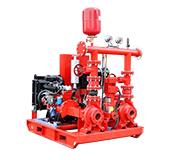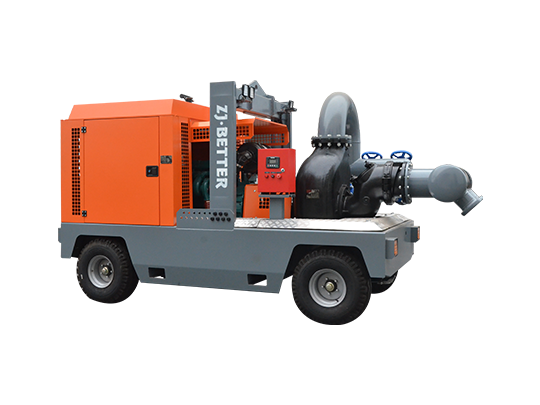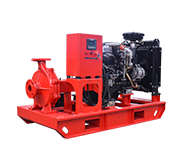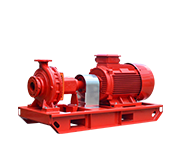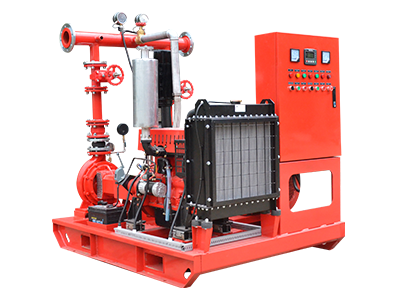- Fire Pump System
-
- UL-Listed Fire Pump SetEDJ End Suction Fire Pump SetEDJ Fire Pump SetEJ Small Flow Fire Pump SetFire Pump PackagesContainerized fire pump setDiesel Fire Pump SetED Small fire pump setElectric Jockey Fire Pump SetFire Pump Set with Jockey PumpFire Pump SystemSplit Case Fire Pump SetMutistage EDJ Fire Pump SetDiesel Fire Pump Set with Jockey PumpFire Fighting Pump SystemElectric Diesel Jockey Fire Pump SetFire Fighting Pump Set with Jockey PumpSmall Capacity Electric Fire Pump SetDJ Fire Pump Set with Jockey PumpEJ Fire Pump SetED Fire Pump Set (Electric+Diesel pump)Diesel Engine Fire Pump SetDiesel Fire Jockey PumpSmall Fire Pump SetEDJ Fire Pump SystemFire Water Pump SetFire Pump AssemblyDJ Small Flow Fire Pump SetCummins Engine Fire Pump Set
- Mobile Pump Unit
-
- Split Case Series Mobile Pump TruckSelf Priming Series Mobile Pump TruckCentrifugal diesel driven dewatering pumps open frame trailerFlow-mixing Mobile Pump TruckFlow-mixing Mobile Pump TruckManure Pump TruckP12 modle mobile Pump truckP10 Modle Mobile Pump Truck1000m³Self Priming Series Mobile Pump TruckLarge Flow Non-Clogging Mobile Fire Pump TrailerTrailer Mounted Fire PumpFire Emergency Mobile Pump TruckDiesel Engine Emergency Mobile Trailer Pump
- Diesel Fire Pump
-
- UL Listed Diesel End Suction Fire PumpXBC-S Diesel Split Case Fire PumpXBC-IS Diesel End Suction Fire PumpXBC-D Diesel Multistage Fire PumpVertical Turbine Diesel Engine Fire PumpDiesel Engine Single-Stage Centrifugal PumpXBC-IS Diesel End Suction Fire Fighting PumpXBC-S Diesel Engine Split Case Fire PumpDiesel Engine End Suction Fire PumpXBC-IS Diesel End Suction Fire PumpsZWC Diesel Engine Self Priming Pump for IrrigationDiesel Engine End Suction Fire Fighting PumpXBC-S Heat Exchange Diesel End Suction Fire PumpXBC-XA Diesel Engine End Suction Fire PumpXBC-IS Diesel Engine Fire PumpDiesel Engine End Suction Fire PumpXBC-IS Diesel Engine End Suction Fire PumpXBC-ISO Diesel Fire Fighting PumpPortable Fire PumpFire Booster Pump

Email: zjbetter@119pump.com
Tel:+86 15336708022(Gloria) +86 13306708055 (Ivy) +86 13357006058 (Serena) +86 13357022877 (Wendy) +86 17757009882(Kate)
Fax:0086-570-3010238
-
What are the key factors in designing fire pump systems for temporary structures and events?
- Portability and Flexibility: Designing systems that are portable and flexible to accommodate various temporary structures. - Rapid Deployment: Ensuring systems can be rapidly deployed and set up for temporary events. - Reliable Performance: Providing reliable performance to safeguard attendees and event infrastructure. - Compliance with Temporary Structure Regulations: Adhering to fire safety regulations specific to temporary structures and events.
View more +
-
What are the considerations for fire pump systems in multi-use sports complexes?
- Diverse Coverage Needs: Providing comprehensive fire protection for a variety of facilities, including arenas, locker rooms, and concession areas. - High Capacity: Ensuring the system can handle large-scale fires that may occur in extensive sports facilities. - Integration with Emergency Protocols: Coordinating with emergency protocols and evacuation plans specific to sports events. - Compliance with Sports Facility Standards: Adhering to fire safety regulations and standards specific to sports complexes.
View more +
-
How do fire pumps support fire protection in high-occupancy event spaces?
- Rapid Evacuation: Ensuring the system supports rapid evacuation procedures to minimize risk to large crowds. - Flexible Design: Providing flexible design options to accommodate varying event setups and capacities. - Noise and Disruption Minimization: Ensuring minimal noise and disruption to maintain a pleasant environment. - Compliance with Event Space Standards: Adhering to fire safety regulations and standards specific to high-occupancy event spaces.
View more +
-
How do fire pumps support fire protection in hazardous waste facilities?
- Specialized Fire Suppression Systems: Implementing fire suppression systems designed for hazardous waste materials. - Explosion-Proof Equipment: Using explosion-proof equipment to prevent ignition of flammable or explosive materials. - Regular Maintenance and Inspections: Conducting regular maintenance and inspections to ensure system reliability. - Compliance with Environmental Regulations: Adhering to stringent environmental and safety regulations specific to hazardous waste handling.
View more +
-
How do fire pumps integrate with smart building technologies?
- IoT Integration: Incorporating Internet of Things (IoT) devices for real-time monitoring and control. - Automated Alerts and Responses: Setting up automated alerts and responses to enhance safety and efficiency. - Data Analytics: Using data analytics to optimize system performance and maintenance schedules. - Enhanced Energy Management: Coordinating with smart building energy management systems to improve overall energy efficiency.
View more +
-
What are the key factors in designing fire pump systems for mixed-use developments?
- Diverse Use Cases: Providing comprehensive coverage for diverse use cases, such as residential, commercial, and retail spaces within a single development. - Flexible Design: Ensuring flexible system design to accommodate changing uses and layouts. - Integrated Monitoring: Using integrated monitoring systems to manage fire protection across different areas. - Compliance with Multiple Standards: Adhering to various fire safety standards applicable to different uses within the development.
View more +
-
How do fire pumps support fire protection in oil and gas facilities?
- Explosion-Proof Design: Using explosion-proof equipment to prevent ignition of flammable substances. - High Capacity and Pressure: Providing high-capacity and high-pressure systems to manage large fires. - Chemical Compatibility: Ensuring materials are compatible with the chemicals present in the facility. - Integration with Safety Systems: Coordinating with other safety systems, such as gas detection and emergency shutdown systems.
View more +
-
How do fire pumps integrate with advanced fire detection and suppression technologies?
- Smart Sensors: Integrating with smart sensors and detection systems that provide real-time data and early fire detection. - Automated Control: Utilizing automated control systems to ensure rapid activation and precise operation of the fire pump. - Remote Monitoring: Enabling remote monitoring and diagnostics to enhance system oversight and maintenance. - Advanced Suppression Methods: Coordinating with advanced suppression methods, such as foam or gas-based systems, to provide comprehensive fire protection.
View more +
-
What are the considerations for fire pump systems in public safety and emergency response facilities?
- Reliability: Ensuring the system is highly reliable and can function under emergency conditions. - Redundancy: Incorporating redundant systems to guarantee continuous operation even if one component fails. - Rapid Response: Ensuring the system provides rapid activation and response to protect critical infrastructure and personnel. - Regular Drills and Training: Conducting regular drills and training to ensure personnel are familiar with the fire pump system and emergency protocols.
View more +
-
What safety measures should be taken during the installation of an electric fire pump?
Safety measures include: Proper training: Ensure all personnel involved in the installation are properly trained and certified. Electrical safety: Follow all electrical safety protocols, including lockout/tagout procedures to prevent accidental energization. Personal protective equipment (PPE): Require appropriate PPE such as gloves, helmets, and eye protection. Risk assessment: Conduct a thorough risk assessment to identify and mitigate potential hazards. Emergency procedures: Establish and communicate emergency procedures in case of accidents or unexpected incidents.
View more +
-
How do electric fire pumps handle high-rise building pressure requirements?
Handling high-rise pressure requirements involves: High-capacity pumps: Using pumps designed to deliver the required pressure and flow rate to the highest floors. Booster pumps: Implementing booster pumps at strategic locations to maintain adequate pressure throughout the building. Pressure-regulating valves: Installing pressure-regulating valves to manage and maintain consistent pressure at different levels. Regular testing: Conducting regular performance tests to ensure the system meets pressure requirements.
View more +
-
How do fire pumps support fire protection in subterranean structures, like tunnels and underground facilities?
- High-Pressure Delivery: Ensuring high-pressure water delivery over long distances and through complex underground layouts. - Heat Resistance: Using components that can withstand the high temperatures typically found in underground fires. - Space Constraints: Designing systems to fit within the confined spaces of tunnels and underground facilities. - Ventilation Integration: Coordinating with ventilation systems to manage smoke and heat during firefighting operations.
View more +
-
What are the key factors in designing fire pump systems for large-scale event venues?
- Crowd Safety: Ensuring the system provides rapid and reliable fire protection to safeguard large crowds. - Flexible Coverage: Designing systems to cover multiple event spaces within a venue, such as exhibition halls, concert stages, and seating areas. - Minimized Disruption: Ensuring that the fire pump system operates quietly and efficiently, minimizing disruption during events. - Integration with Emergency Plans: Coordinating with the venue's emergency response plans for efficient evacuation and fire control.
View more +
-
What is the importance of flow testing in electric fire pump systems?
Flow testing is crucial for: Verifying capacity: Ensuring the pump can deliver the required flow rate and pressure. Identifying issues: Detecting blockages, leaks, or other problems that could affect performance. Compliance: Meeting the requirements of fire safety standards and regulations. Performance benchmarking: Establishing baseline performance data for future comparison and trend analysis.
View more +
-
What are the benefits of using electric fire pumps in industrial applications?
Benefits for industrial applications include: Consistent performance: Providing reliable water pressure for large-scale fire suppression systems. Low emissions: Producing no exhaust fumes, which is crucial for maintaining air quality in enclosed industrial environments. Ease of integration: Easily integrated with automated fire detection and suppression systems. Energy efficiency: Often more energy-efficient than diesel counterparts, reducing operational costs.
View more +
-
What are the key differences between electric and diesel fire pump maintenance?
Key differences in maintenance include: Frequency: Diesel pumps require more frequent maintenance due to engine components that need regular servicing. Complexity: Diesel pumps have more complex maintenance needs, including fuel system checks, oil changes, and exhaust system inspections. Costs: Maintenance costs for diesel pumps can be higher due to the complexity and frequency of required services. Skill requirements: Maintaining diesel pumps often requires specialized knowledge and skills, whereas electric pumps may be simpler to service.
View more +
-
What are the benefits of using electric fire pumps in high-rise buildings?
Benefits for high-rise buildings include: Reliable performance: Providing consistent water pressure to all floors, essential for effective fire suppression. Compact design: Often more compact and easier to install in limited spaces compared to diesel pumps. Quiet operation: Producing less noise, which is beneficial in residential or office environments. Environmentally friendly: Emitting no exhaust fumes, contributing to better indoor air quality and compliance with environmental regulations.
View more +
-
How do you ensure the longevity of an electric fire pump?
To ensure longevity: Regular maintenance: Follow a strict maintenance schedule, including inspections, lubrication, and parts replacement. Quality parts: Use high-quality, certified replacement parts to avoid premature wear. Proper operation: Ensure the pump operates within its designed parameters to prevent overloading or excessive wear. Environment control: Maintain a clean, well-ventilated, and stable environment to prevent damage from external factors. Training: Provide ongoing training for personnel to ensure proper operation and maintenance practices.
View more +
-
What are the key differences between electric and diesel fire pump maintenance?
Key differences in maintenance include: Frequency: Diesel pumps require more frequent maintenance due to engine components that need regular servicing. Complexity: Diesel pumps have more complex maintenance needs, including fuel system checks, oil changes, and exhaust system inspections. Costs: Maintenance costs for diesel pumps can be higher due to the complexity and frequency of required services. Skill requirements: Maintaining diesel pumps often requires specialized knowledge and skills, whereas electric pumps may be simpler to service.
View more +
-
How do you ensure continuous operation of an electric fire pump during a power outage?
To ensure continuous operation during a power outage: Backup generators: Install a reliable backup generator with sufficient capacity to power the fire pump and other critical systems. Automatic transfer switches (ATS): Use ATS to automatically switch to the backup power source without interruption. Uninterruptible power supplies (UPS): Implement UPS systems to provide immediate power during the transfer switch delay. Regular testing: Conduct routine tests of the backup power system to ensure it operates correctly in an emergency.
View more +
-
How do you handle the disposal of an old electric fire pump?
Proper disposal of an old electric fire pump involves: Environmental regulations: Adhering to local and national environmental regulations for disposing of electrical and mechanical components. Recycling: Partnering with certified recycling facilities to responsibly recycle metals, plastics, and other materials. Hazardous materials: Properly disposing of any hazardous materials, such as lubricants and coolants, according to safety guidelines. Documentation: Keeping records of the disposal process to ensure compliance with environmental policies.
View more +
-
How do fire pumps integrate with water mist fire suppression systems?
- Pressure Requirements: Providing the high-pressure water supply necessary for water mist systems to generate fine droplets. - Compatibility: Ensuring materials and components are compatible with the unique demands of water mist systems. - System Coordination: Coordinating activation and control with water mist system components for optimal performance. - Maintenance Needs: Addressing specific maintenance requirements for water mist systems to ensure reliable operation.
View more +
-
What are the main causes of electric fire pump failures and how can they be prevented?
Main causes of failures include: Electrical issues: Prevent by regularly inspecting wiring, connections, and motor health. Mechanical wear: Conduct routine lubrication and replacement of worn parts. Overheating: Ensure proper ventilation and cooling systems are in place. Blockages in the water supply: Regularly inspect and clean intake screens and pipes. Improper maintenance: Follow a strict maintenance schedule and use certified technicians.
View more +
-
How do you select the appropriate fire pump for a specific application?
Selecting the appropriate fire pump involves several steps: Assessing water demand: Calculate the required flow rate and pressure based on the building's size, occupancy, and fire suppression system requirements. Evaluating water supply: Ensure the available water source can meet the pump’s demands. Considering power availability: Verify that the electrical supply can support the pump’s power requirements. Compliance with standards: Ensure the selected pump meets relevant standards like NFPA 20. Consulting experts: Work with fire protection engineers and pump manufacturers to choose the best solution for your specific needs.
View more +
-
How does the installation environment affect the performance of an electric fire pump?
The installation environment can significantly impact the performance of an electric fire pump. Factors to consider include: Humidity: Excessive humidity can cause electrical components to corrode or short-circuit. Proper ventilation and humidity control measures are essential. Temperature: Extreme temperatures can affect motor performance and the viscosity of lubricants. Ensure the pump room maintains a stable temperature within the operational range. Dust and debris: Dust can clog filters and damage moving parts. Regular cleaning and maintaining a clean environment can help prevent these issues. Vibration and shock: Install the pump on a stable, vibration-free surface to avoid mechanical wear and misalignment.
View more +

